How does caffeine affect PCOS?

If you live with PCOS, you’ll know how many opinions there are around what you should and shouldn’t drink. Caffeine, in particular, often gets mixed reviews. While your morning coffee might feel like a comforting ritual, caffeine’s effect on PCOS can be surprisingly complex. Some studies suggest it can offer antioxidant benefits, while others warn that overdoing it might disrupt hormones and energy balance. As always, balance and self-awareness are key.
Why Too Much Caffeine Can Cause Trouble
For some, high caffeine intake can throw hormones and blood sugar off balance, making PCOS symptoms harder to manage. It can raise cortisol levels — the “stress hormone” — which may in turn affect progesterone and insulin balance.
Too much caffiene can lead to a caffeine crash, which can lead to sugar cravings and energy dips. It can also affect blood pressure, which in turn can cause inflammation. As a diuretic, caffiene increases water loss — and with it, important B vitamins that support energy and metabolism.
It is also known to heighten anxiety or jitteriness, especially if you’re already sensitive to stress or hormonal changes.
The Brighter Side of a Brew
On the flip side, moderate caffeine consumption can offer benefits — particularly through the antioxidants found in coffee and tea. Coffee contains compounds with anti-inflammatory and antioxidant properties that may support metabolic health. And moderate coffee drinking has been linked to a lower risk of type 2 diabetes and may help improve cholesterol levels.
The Benefits of Matcha for PCOS
Matcha may offer several benefits in managing PCOS symptoms, in addressing key aspects of the condition like insulin resistance, inflammation, and hormone imbalances. Small scale research has shown that matcha can:
- Improved Insulin Sensitivity and Blood Sugar Control: PCOS is often associated with insulin resistance. The catechins in matcha may help improve insulin sensitivity and glucose metabolism, leading to a decrease in fasting insulin and blood sugar levels.
- Reduced Inflammation: The high antioxidant content of matcha helps fight oxidative stress and reduces inflammation, a common underlying factor in PCOS.
- Hormone Balance: Studies (primarily on green tea extract) have shown that consuming green tea can lead to a significant decrease in free testosterone and luteinizing hormone (LH) levels, helping to mitigate symptoms like acne and excess hair growth.
- Gentler Energy Boost: The combination of caffeine and L-theanine provides sustained energy without the jitters or crash associated with coffee, which may be beneficial for those with caffeine sensitivity.
Mind Over Matcha is our creamy, hormone-friendly blend. It contains 3.3 grams of organic matcha, delivering antioxidants and high levels of L-Theanine for gentle, long-lasting energy and improved mental clarity. It’s quicker and easier than traditional matcha - just stir, sip, and go.
Finding What Works For You
Like most things in wellness, there’s no one-size-fits-all answer. Your ideal caffeine intake depends on your body, your stress levels, and your overall lifestyle.
- Keep your caffeine moderate — up to 200 - 300 mg per day is considered safe for most adults.
- Stay hydrated, - herbal teas and water help offset caffeine’s diuretic effects. Get Up & Glow is the perfect mid afternoon brew to give you a boost without caffeine.
- Notice how your body feels. If you’re jittery, anxious, or sleeping poorly, try cutting back or switching to gentler caffeine options. Head Start contains more caffeine than a cup of English breakfast tea, but the white tea in the blend gives you a more gentle prolonged boost without the negative effects that a direct hit of caffeine may cause.
- Focus on balance. Caffeine alone won’t make or break your hormonal health - a nourishing diet, good sleep, and stress management are natural ways to help manage PCOS.

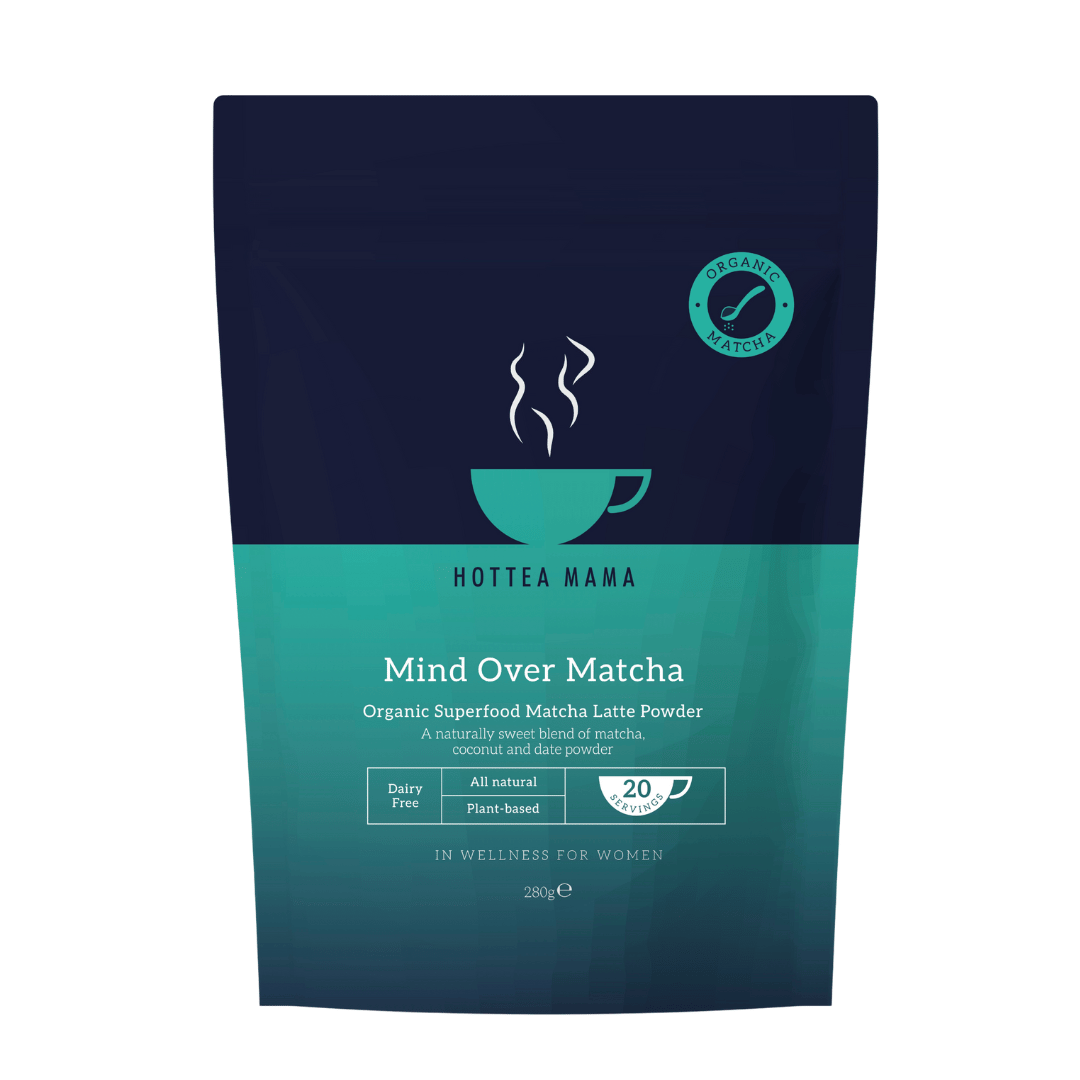

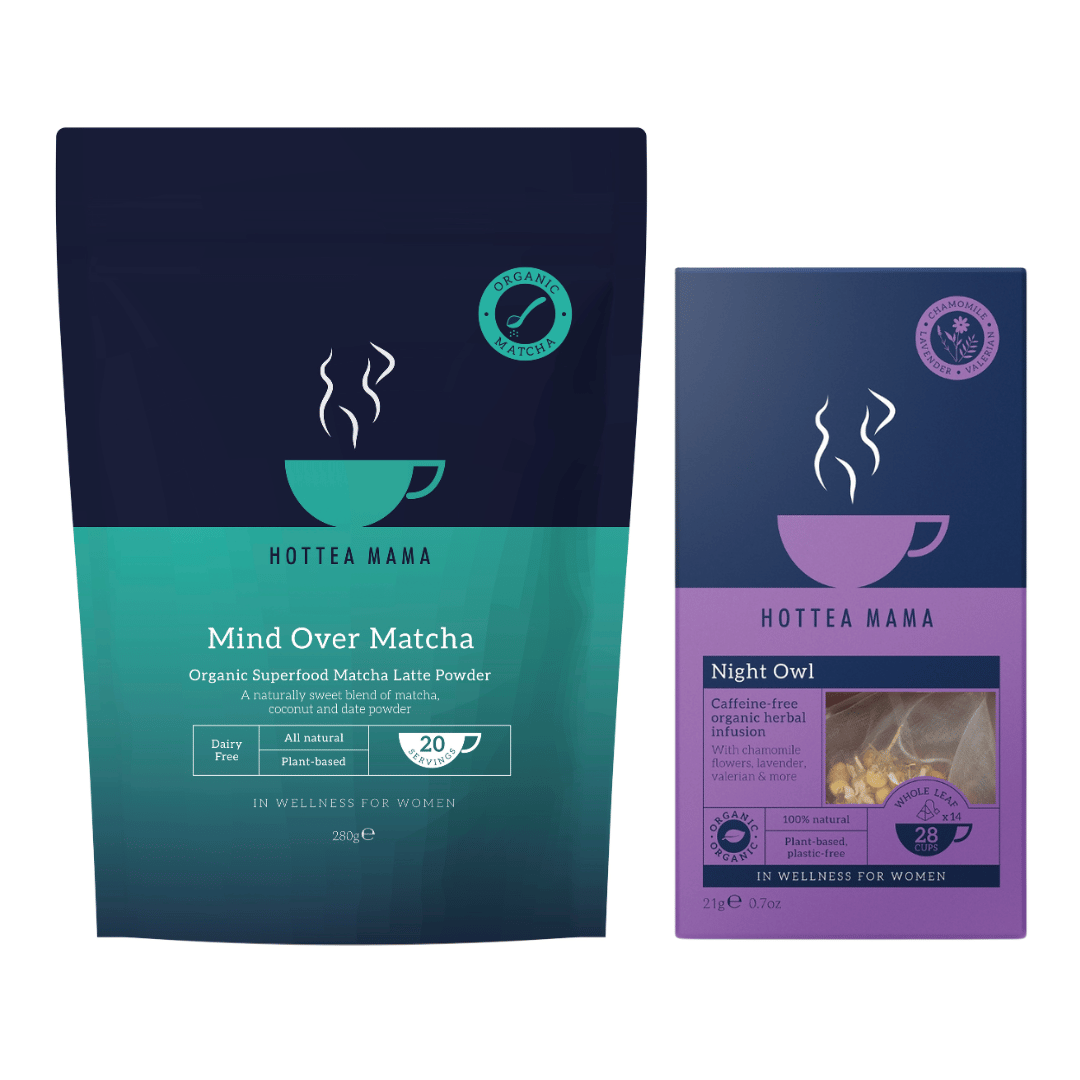

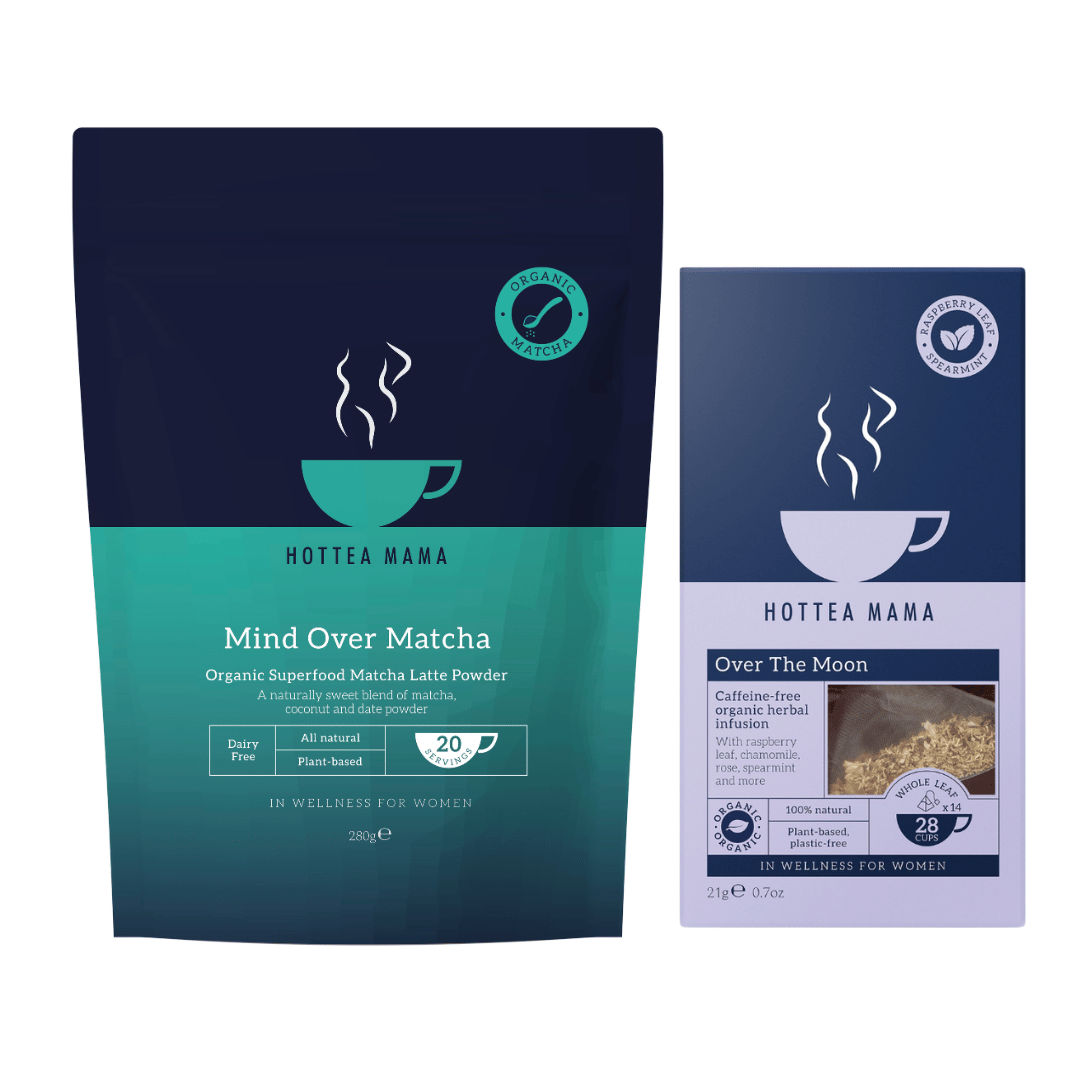

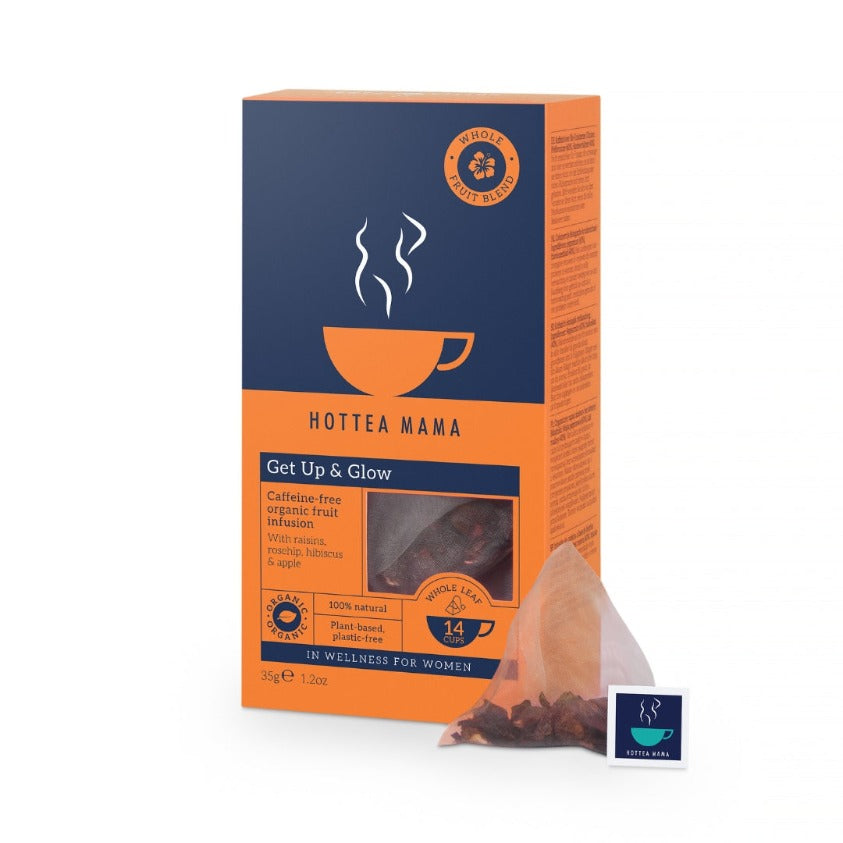



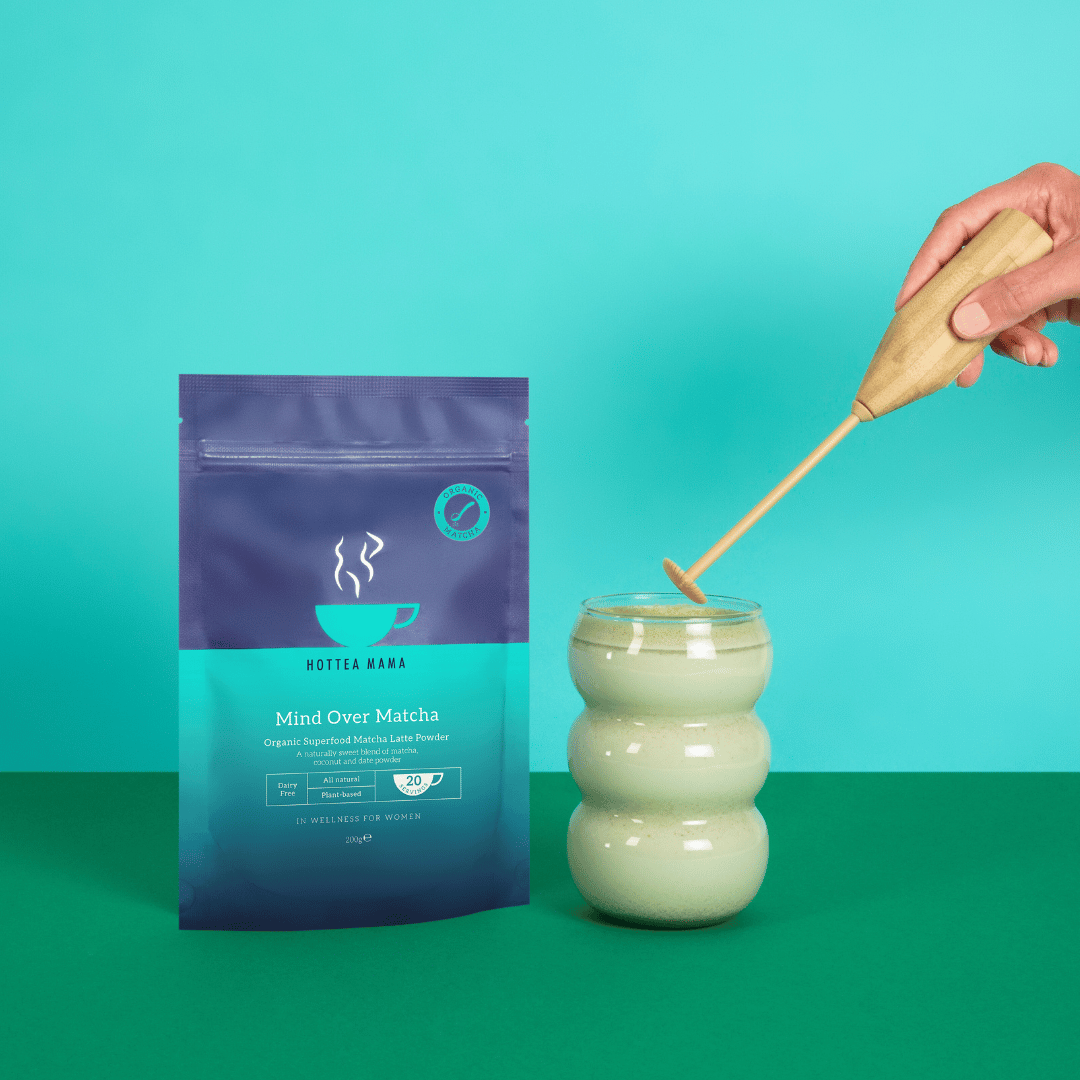
Comments